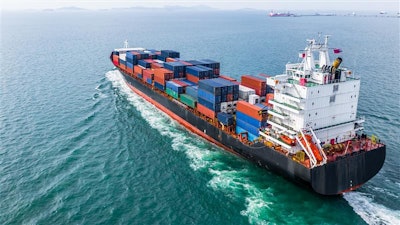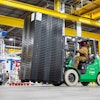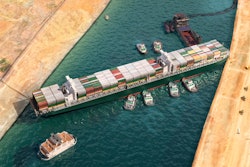
It was March 23 when a stranded Evergreen container ship blocked navigation in Egypt’s Suez Canal. The 224,000-ton ship named EVER GIVEN, said to be the largest ship in the world, remained stuck, so to speak, for six days, creating the largest supply chain disruption in 2021 to date.
Once freed, it was back to regularly scheduled programming, but here we are, in May, still talking about the ramifications from this disruption.
That’s because disruptions of this magnitude don’t just disrupt supply chains; they disrupt all fashions of how companies do business, creating a domino effect that can sometimes take weeks or months to return to normal. Whatever that normal is.
ClearPrism reports the canal blockage will affect approximately 25% of the U.S. gross domestic product (GDP) value, and the ripple effect will impact another 15%.
But, at the end of the day, this disruption serves as a wakeup call to the supply chain industry that 1. disruptions still and will continue to happen, and 2. if you don’t have a supply chain plan in place now, you better fix that. Now.
I interviewed several ports and ocean carriers for this issue’s cover story (page ___) and the common theme between all of their responses is that supply chain disruptions will never go away. They will never stop. They will always be there to disrupt the way companies transport cold foods, or the way they store temperature-controlled products. Supply chain disruptions will happen when you least expect it, and could be catastrophic to your company if the proper measurements and plans aren’t in place.
It’s how your company reacts to these disruptions that makes or breaks your ability to overcome and succeed. It’s your company’s ability to implement the necessary technology and solutions that aid in supply chain planning and risk mitigation. It’s the ability to embrace change and update your internal processes to ensure people, products and plants are safe and efficient.
I know for me, something small like showing up late to a meeting can throw off and disrupt my entire day. That’s just a meeting. Don’t let disruptions of larger magnitudes throw off how you conduct business. There will always be supply chain disruptions. So, plan accordingly.
Want to learn more about supply chain disruptions? Register for our SCN Summit: State of the Supply Chain week, June 7-11, with live video presentations from leading industry experts discussing workforce development, food safety, procurement, risk management, warehousing and transportation. Register for one, two or all sessions! “See” you then!




















